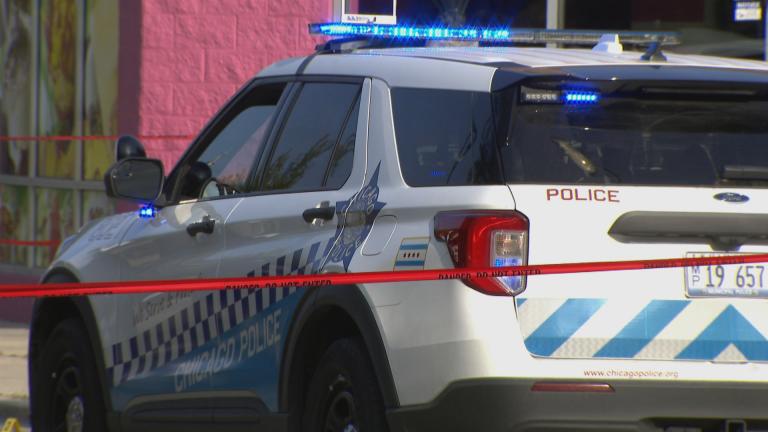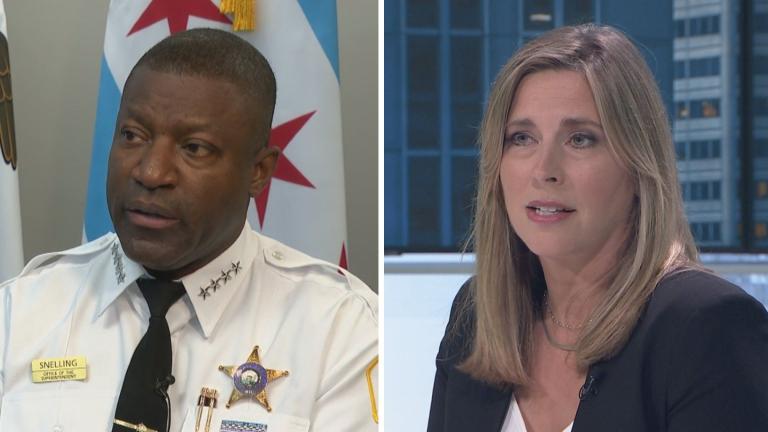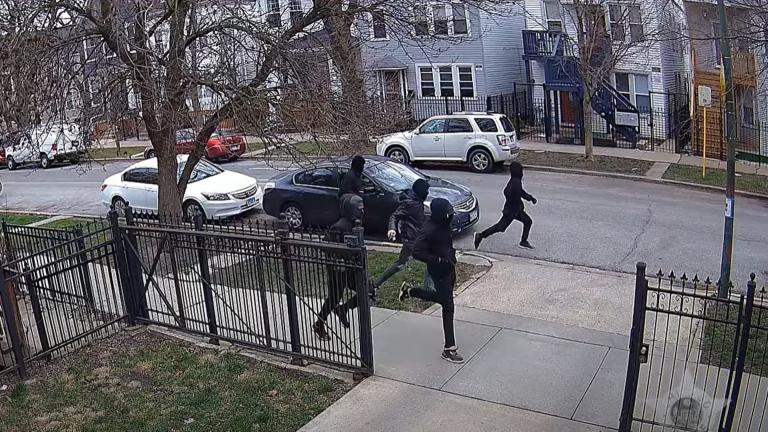The Chicago City Council voted 36-13 to create an elected board of Chicago residents to oversee the Chicago Police Department, enacting the most far-reaching police reform ordinance in the country.
Supporters of the plan said it would give Chicagoans real control of the police department in an effort to build trust in officers and police brass and put an end to repeated allegations of misconduct.
The vote passed with just two votes to spare after a contentious debate of nearly two hours. Ald. Gilbert Villegas (36th Ward) was not present.
“Legitimacy is key to the work our police do,” Mayor Lori Lightfoot said. “If communities do not trust them ... they will not be effective in their core mission, which is protecting every single resident of this city.”
But opponents of the board said it would only complicate efforts to stop a stubborn torrent of violent crime by increasing the department’s bureaucracy, while doing nothing to reform the beleaguered police department.
The proposal triggered a rare, full debate by the City Council, which Lightfoot called “one for the ages.”
However, that back-and-forth grew acrimonious when Ald. Carlos Ramirez-Rosa (35th Ward) invoked the name of 13-year-old Adam Toledo, who was shot to death in March by an officer after a foot chase.
When Ramirez-Rosa said Adam had been murdered, Sposato pounded on his desk in anger, drawing a rebuke from Lightfoot.
“We don't need police reform, we need family reform,” Sposato said. “Families need to start taking ownership and start watching over their children. We don't need to defund the police. We just need to put oversight over the police and make police not wanting this job, afraid to do their job.”
But Ald. Roberto Maldonado (26th Ward) said significant changes were necessary to the way the Chicago Police Department operates, saying that he avoids interacting with officers whenever possible after he and his teenage son were harassed during a traffic stop.
Ten of the 13 dissenting votes, including Sposato, a former firefighter, were cast by white aldermen, a majority of whom represent wards where many police officers live and violent crime is rare.
Ald. Jason Ervin, whose 28th Ward on the West Side includes parts of Garfield Park, urged his colleagues to look beyond their immediate communities.
“We have to think about it in a global sense because this is not just about your box,” said Ervin, the chair of the City Council’s Black Caucus. “This is not just about your community.”
Public Safety Committee Chair Ald. Chris Taliaferro (29th Ward), a former Chicago police officer, likened the police department to his leaky basement.
“It is not because of the city. It because I have cracks in my foundation,” Taliaferro said. “And unless I fix those cracks, I’m going to keep getting water in my basement. And I’m going to keep having to pull carpet up, I’m going to keep having to pull drywall out until I do what? Until I fix the cracks.”
Chicago will not live up to its potential as a “world-class city” until officials fix those cracks, Taliafero said.
However, Ald. Anthony Napolitano (41st Ward) said the panel would make the department’s already low morale worse and discourage Chicagoans from applying to be a police officer.
The debate over the elected board revealed a clear split between aldermen concerned about crime in Chicago. While some objected to creating an elected board because of concerns about rising crime, others said increased police oversight would actually reduce crime by restoring the community’s trust in the beleaguered department.
The proposal — backed by Lightfoot — needed at least 34 of the 50 votes on the Chicago City Council to set elections to create three-member councils in each of Chicago’s 22 police districts, while an appointed seven-member commission, confirmed by the City Council, would oversee the city.
A Department of Justice investigation completed in 2017 in the wake of the police murder of 16-year-old Laquan McDonald found that Chicago police officers routinely violated the constitutional rights of Black and Latino Chicagoans and were rarely held accountable for misconduct.
That probe led to a federal court order that requires the Chicago Police Department to implement reforms over the direction of a federal judge.
Wednesday’s decisive vote came after years of debate — and less than a week after Lightfoot agreed to back the ordinance crafted by the Empowering Communities for Public Safety coalition, a group of community organizations.
The crucial sticking point in negotiations between Lightfoot and the coalition of community organizations centered on the question of who would have the final say on policy for the Chicago Police Department.
The measure approved Wednesday would give the board the final say on policy for the Chicago Police Department — but would also give the mayor a veto that could be overridden by a two-thirds vote of the Chicago City Council.
The new board would recommend candidates for police superintendent and the police board to the mayor.
In addition, the elected board will have the power to hire the head of the Civilian Office of Police Accountability, known as COPA, which is the agency charged with probing police misconduct.
The elected oversight board will also have the power to pass a resolution of no confidence in the superintendent, COPA head and any member of the Chicago Police Board with a two-thirds vote. That could trigger City Council action.
A council made up of non-citizens would advise the commission on issues impacting Chicago’s immigrant and undocumented community, according to the proposed ordinance.
For 16 months, Lightfoot vehemently opposed all of those provisions, repeatedly saying that ceding that kind of authority would make it impossible for the mayor to keep Chicago safe. Her proposal would have given the board’s elected members only the authority to advise the mayor, but that drew only nominal support from members of the Chicago City Council.
The City Council was poised to pass a previous version of the proposal to create an elected board in March 2020, but the conflict over whether the mayor or the board would set policy for the Chicago Police Department doomed the plan crafted by the Grassroots Association for Police Accountability, known as GAPA.
Even though Lightfoot backed that plan during her 2019 campaign for mayor and vowed to pass it during her first 100 days in office, she demanded that the mayor have the final say on policy just before a vote of the City Council, sending the push to legislative limbo for more than a year.
Video: Our Spotlight Politics team digs into City Council’s historic police reform measure, Gov. J.B. Pritzker’s bid for a second term, the Jan. 6 committee and more on “Chicago Tonight.” (Produced by Alex Silets)
Contact Heather Cherone: @HeatherCherone | (773) 569-1863 | [email protected]








